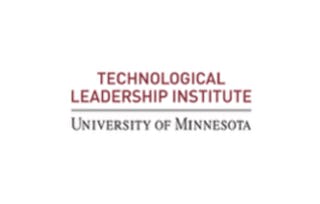This course presents a powerful design tool, overall fabrication process flows and emerging trends in the Micro technology industry. Finite Element Analysis is a computational tool that design teams use to build models and simulate parts or whole systems. FEA has been introduced with the high business impact use cases, and theoretical background. Integrated CPU (computational processor unit) fabrication flow and its evolution over the past decades is covered. Finally, emerging technologies and trends in both compute processor chips and MEMS are presented.

Modeling, IC Processes and Emerging Microtechnology

Modeling, IC Processes and Emerging Microtechnology
This course is part of Introduction to Semiconductor and MEMS Fabrication Specialization


Instructors: Rama Prasad
Included with
Skills you'll gain
- Simulation and Simulation Software
- Artificial Intelligence
- Mathematical Modeling
- Manufacturing Processes
- Scalability
- Electronic Components
- Emerging Technologies
- Process Engineering
- Semiconductors
- Electronic Systems
- Finite Element Methods
- Micrometer
- Computer Architecture
- Skills section collapsed. Showing 8 of 13 skills.
Details to know

Add to your LinkedIn profile
8 assignments
See how employees at top companies are mastering in-demand skills

Build your subject-matter expertise
- Learn new concepts from industry experts
- Gain a foundational understanding of a subject or tool
- Develop job-relevant skills with hands-on projects
- Earn a shareable career certificate

There are 3 modules in this course
This Module will introduce the field of Finite Element Modeling and Simulation (FEA - Finite Element Analysis) as it is practiced in the development and fabrication of MEMS devices and other semiconductor devices. The first section will cover the benefits of using modeling and simulation for product development and manufacturing control. The second section of this module will go into the governing equations capturing the physics of operation of the devices in this sector of Micro Technology. This section also covers – the concept of discretization and approximation theory. Complex partial differential equations of the governing equations are converted to a computer solvable set of linear algebraic equations using approximation theory. Finally, the limitations and shortcomings of FEA is presented, this prepares the students for - factors to consider when using FEA successfully as a powerful and efficient tool.
What's included
3 videos5 readings3 assignments1 plugin
This module puts the individual micro fabrication process steps (covered in earlier courses) in an integrated process flow or sequence, to fabricate a complete IC (integrated circuit) wafer. A simple example of the early 3 micro m CMOS circuit chip process flow is walked through. The market specification drivers of the IC circuit is touched upon.
What's included
3 videos5 readings3 assignments1 plugin
Semiconductor industry is a uniquely remarkable industry that has experienced tremendous increase in computation capability, decrease in chip size, decrease in energy consumption and decrease in cost, all at the same time. This transformational industry continues to see Moore’s law evolve in new ways like parallel algorithms in the software, environment interaction device types (MEMS) built from semiconductor materials and fabrication processes, and quantum computing. The Microtechnology ecosystem is strong within USA and includes the leading R&D entities located across the country. There are industry associations and networks that serve this community.
What's included
2 videos4 readings2 assignments
Earn a career certificate
Add this credential to your LinkedIn profile, resume, or CV. Share it on social media and in your performance review.
Offered by
Explore more from Electrical Engineering
 Status: Free Trial
Status: Free TrialUniversity of Minnesota
 Status: Free Trial
Status: Free TrialUniversity of Minnesota
 Status: Free Trial
Status: Free TrialUniversity of Minnesota
 Status: Free Trial
Status: Free TrialUniversity of Minnesota
Why people choose Coursera for their career

Felipe M.

Jennifer J.

Larry W.

Chaitanya A.

Open new doors with Coursera Plus
Unlimited access to 10,000+ world-class courses, hands-on projects, and job-ready certificate programs - all included in your subscription
Advance your career with an online degree
Earn a degree from world-class universities - 100% online
Join over 3,400 global companies that choose Coursera for Business
Upskill your employees to excel in the digital economy
Frequently asked questions
To access the course materials, assignments and to earn a Certificate, you will need to purchase the Certificate experience when you enroll in a course. You can try a Free Trial instead, or apply for Financial Aid. The course may offer 'Full Course, No Certificate' instead. This option lets you see all course materials, submit required assessments, and get a final grade. This also means that you will not be able to purchase a Certificate experience.
When you enroll in the course, you get access to all of the courses in the Specialization, and you earn a certificate when you complete the work. Your electronic Certificate will be added to your Accomplishments page - from there, you can print your Certificate or add it to your LinkedIn profile.
Yes. In select learning programs, you can apply for financial aid or a scholarship if you can’t afford the enrollment fee. If fin aid or scholarship is available for your learning program selection, you’ll find a link to apply on the description page.
More questions
Financial aid available,

